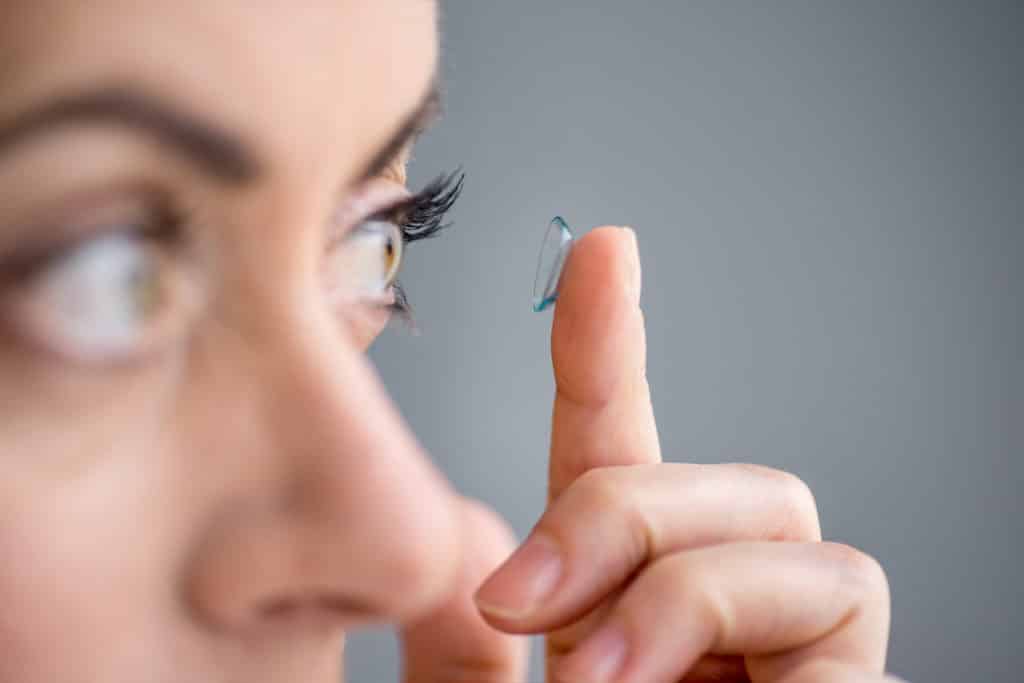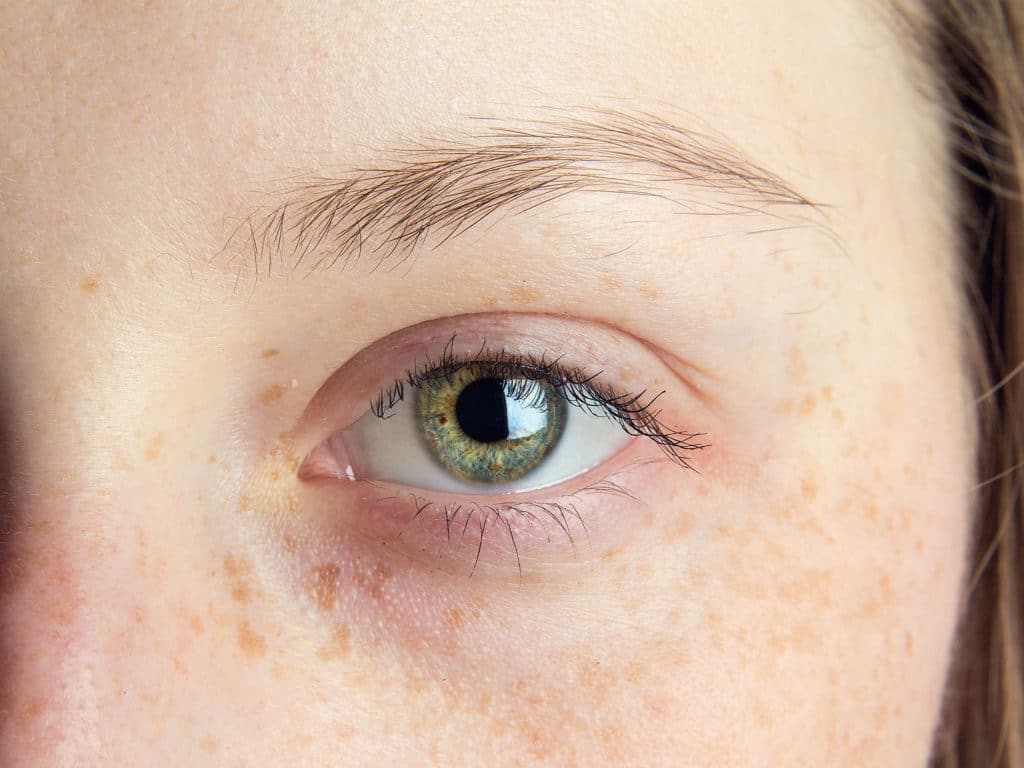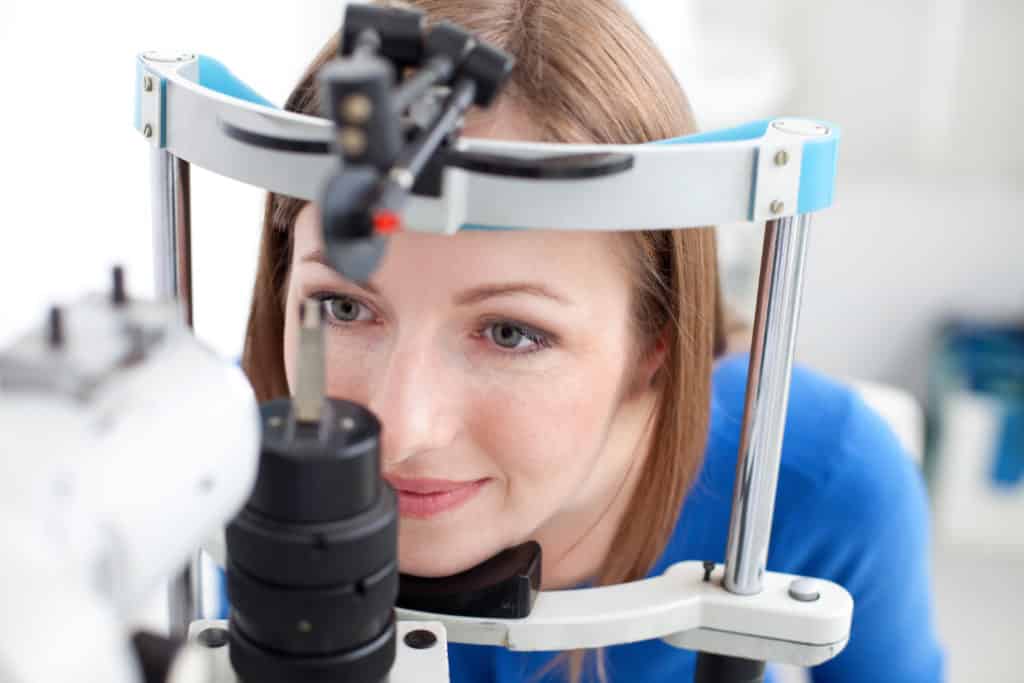Were your contacts fine yesterday, but today they’re blurry? Blurry contacts can make life so much harder, especially since you can’t just wipe them off, like you could with smudged glasses. If you’re struggling with blurry contacts, there are multiple potential reasons for this that go beyond a worsening prescription. Here’s what you need to know about some of the most common reasons why you might have blurry contacts.

#1. Poor Contact Lens Hygiene
If you aren’t exercising proper contact lens hygiene, you’ll likely notice that your contacts seem blurry. It’s crucial to ensure that you’re cleaning your contacts properly and handling them with care, as poor contact lens hygiene increases your chances of getting an eye infection, as well as experiencing eye pain and/or blurred vision. Left untreated, an eye infection that results from misusing your contacts can lead to blindness.
Proper contact lens hygiene includes: cleaning your contacts properly, not letting them dry out, washing your hands before you place them on your eyes and before you take them out, and not sharing your contacts with other people.
#2. You Need An Updated Prescription
Our eyesight gets worse as we get older, and if you have blurry vision, it could be because you need a new prescription in order to work for your vision changes. Given that we typically only have our eyes examined every 1-2 years, our vision can get worse over that time. If you have blurry contacts that just keep getting blurrier, it could be because you have a worsening prescription and need a new one.
This is a fairly common reason why people have blurry contacts, due to the fact that most people buy boxes of contacts to last them a year or more in order to save money per box. By the time they’re on the last pair of contact lenses in their boxes, the prescription no longer works with their vision and they need to see their optometrist in order to get a new prescription.
#3. You Just Got A New Prescription

When your prescription goes up or if you are new to the contact lens world, your eyes may need time to adjust to the prescription. This is especially true if you’ve picked up habits of squinting, adjusting your head, or blinking in order to try to see better, and you no longer need to with your new prescription. Typically, your eyes will adjust within the span of two weeks and your blurry contacts issue should go away.
#4. Dry Contacts Or Dry Eyes
If you’ve been wearing your contacts for too long, you may get blurry contacts because they’re drying out. This is not only uncomfortable and may cause your contacts to shift around your eyes, but can also cause your eyesight to get blurry. Applying rewetting drops that are safe for contact lenses can alleviate dry contacts, as can removing them, rinsing them out, and then putting them back in.
In that same vein, it might not be that you have dry contacts, but rather dry eyes. Your eyes are covered by a tear film that both protects them and helps you see more clearly, due to the fact that it helps you focus light. If your eyes get dry, then you won’t be able to see as clearly. If your eyes are too dry, then your contacts won’t be able to work with them as well, which can cause that ‘blurry contacts’ effect.
Eye drops can help with this. If you frequently struggle with dry eyes, talk to your optometrist, as glasses may be a better option for you.
#5. Movement Or Lens Rotation
If you have blurry contacts, the reason why could be as simple as just your lenses shifting out of place. If your contact lenses move, this can cause your vision to blur, as they’re not where they need to be. This could be because of a fitting issue, and you can talk to your optometrist about improving the fit of your lenses. Other times, it could be because your lenses were starting to dry out, and putting in eye drops can help your contacts move back into their proper position.
#6. You’re Wearing Them For Too Long

If you started out the day with clear vision and you end it with blurry contacts, this could be because you’re wearing them for too long. You want to ensure you are following instructions for how long you are supposed to wear them, as well as how long they need to stay in their solution in order to be cleaned. Some contacts are made to be worn for one day and one day only, while others can last a full month. You never want to sleep in your contacts, as this can damage your eyes and cause eye infections.
These are but a few of the reasons why you may have blurry contacts. Most of the reasons behind blurry contacts aren’t serious, however, they all have the potential to become serious if left untreated. If you’re struggling with blurry contact, don’t hesitate to ask your eye doctor, as they will be able to help you determine the cause and what can be done about it.
Wolcott Optical provides top tier contact lens services. If you would like to learn more about contact lenses, please don’t hesitate to contact us today.



